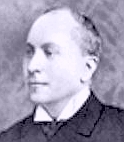In a word, the treatment has enabled this patient, who was practically incapacitated for work to resume her duties as governess with comfort and ease, and with an almost certain prospect of being restored to her former health and strength.
This is a hundred times better than operations, in my opinion, and in that of the patient.
UTERINE FIBROID ANOTHER CASE.
The next case is given for the same reason in patient’s own words, under date June 5, 1900:
“About three years ago I was feeling very unwell, always tired, with backache and constant grinding, pains in the abdomen. I also knew I had lumps there, unusual to most, so went to consult a doctor (Dr. W., of Peterborough), who at once said that I could undergo an operation in a month’s time. I was then taken to another doctor (Dr. M., of Birmingham), who confirmed Dr. W.’s statement, only that I must not undergo any operation, as the chances were nine to ten whether I should pull through, and that I must consider myself an invalid for life, and rest as much as possible. Soon after I was recommended to go and see you, and was under your treatment a little over fifteen months, and during that time and since I feel I have derived benefit. Every one tells me I took very much better, and although I am not able to do any laborious housework, I can do light duties such as dusting, &c., and can superintend generally. I feel it must be your treatment, as I have taken no other prescriptions since I first went to you, and during the past year have taken no medicine.
” It was about first or second week in October, 1897, that I first came to you.”
In addition, the patient writes to me at the same time:
” I still continue to feel very well and do not increase in size, in fact, I think sometimes I am slightly smaller, and the fact of having had so many extra people to cater for proves that I am wonderfully well, for I could not have stood the noise and anxiety three years ago.”
The remedial agents in this case were chiefly Crocus vernalis and Sativus.


